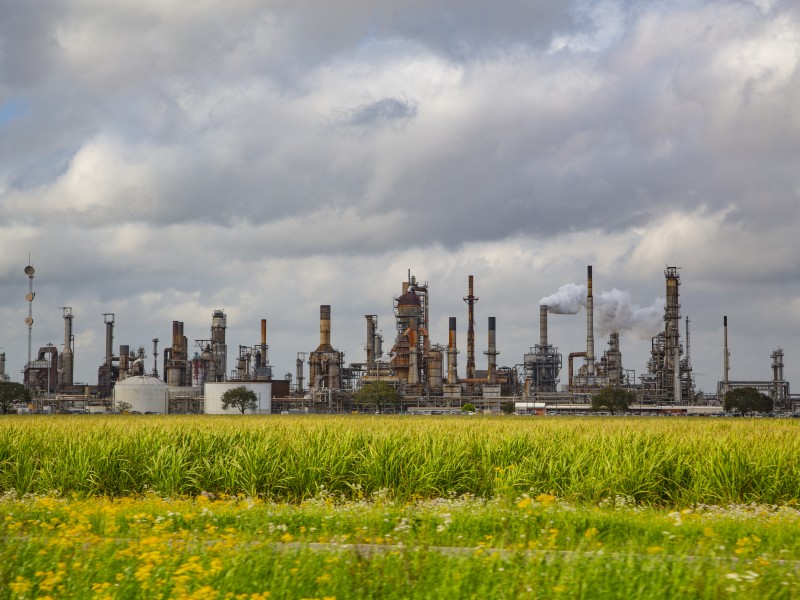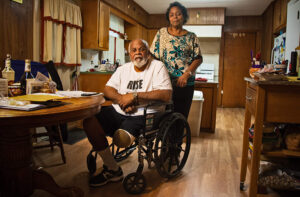Cancer Alley Becomes COVID Alley as Environmental Racism Perpetuates the Pandemic’s Death Rates in this Louisiana Community

COVID-19 Impacting Socially and Economically Marginalized Groups
The United States is a developed, sophisticated economy by all global metrics, but is not immune to challenges – including public health challenges – borne out of social and economic inequality. At alarming rates, these challenges are disproportionately impacting poor and marginalized populations, and often-times communities of color. The COVID-19 pandemic has held up the mirror to some of the most significant planetary health issues in the country that existed prior to, and are made worse by the pandemic.
Pollution Contributes to COVID-19 Death Rates
Harvard University published analysis in April 2020 that proves a statistical link between COVID deaths and other diseases associated with long-term exposure to air pollution. In addition to highlighting the impact air pollution has to COVID death rates, the study also concludes that communities of color are “disproportionately impacted by air pollutants and are more likely to face a ‘pollution burden.’”
Cancer Alley turned COVID Alley – Where Socio-Economic Disparities Meet Environmental Injustice during a Pandemic
Perhaps nowhere is this interplay more evident than in the St James Parish in Louisiana. African Americans represent 32 percent of the population in Louisiana, yet they account for 56 percent of the state’s COVID-19 deaths. Within the St James Parish there are over 30 petrochemical plants that emit known carcinogens such as ethylene oxide and benzene. But it’s not just chemical plants. The Trump Administration has also promoted the development of plastic plants and the Parish marks an important leg of the Bayou Bridge oil pipeline. Though the Parish represents an equitable split between black and white residents (roughly 49 percent apiece), the chemical plants are concentrated in the fifth district, which is 80 percent black. (MSNBC)
Prior to the COVID-19 pandemic, St James Parish earned another nickname “Cancer Alley”. Those living in the area are more than 50 times as likely to get cancer than the average American. Although residents have been unable to prove a causal connection between industry and the health effects, the Parish registered (in April 2020) the highest COVID-19 death rate per capita of any county in the United States.
When the first petrochemical plants arrived, there was a prospect of jobs and economic security. Instead, white landowners sold off lands to big corporations and the prospects of black applicants getting those jobs vanished.
Sharon Lavigne, a resident of St James Parish and advocate for environmental justice spoke to Rolling Stone magazine about the false promise of economic revitalization that was meant to accompany the influx of chemical and plastic plants, and an oil pipeline.
“They promised us jobs,” Lavigne says. “Instead they pollute us with these plants, like we’re not human beings, like we’re not even people. They’re killing us. And that is why I am fighting.”

Sharon Lavigne and Milton Cayette Jr, her brother , at his home in St. James, LA.
The black citizens of St James Parish have long been suffering the consequence of their dangerous neighbors. In a perverse relationship that deprives them the economic benefits of these industries, their financial entrapment forces them to live in precarious proximity to the toxic air they produce. COVID-19 has proven the relationship between toxins in the air and death rates that have long persisted in places like St James Parish. The question for policymakers, citizens, and industries alike is whether the pandemic casting a light on this truth will pave way for protecting vulnerable communities over the long term. There may soon be a vaccine for COVID-19, but a cure for the systemic injustices ailing and killing communities as this will take more than a needle prick.
Sources:
https://www.msnbc.com/podcast/first-pollution-now-coronavirus-black-parish-louisiana-deals-double-whammy-n1189951




Hi, this is a comment.
To get started with moderating, editing, and deleting comments, please visit the Comments screen in the dashboard.
Commenter avatars come from Gravatar.
This is a great post, Katie. You’ve really embodied the academic blogging style and you write very compellingly. The correlation is truly shocking and it’s unbelievable that no one is taking notice. Do you see a way forward to address the inequity?
Thanks,
Ladeisha
I particularly like the focus on environmental racism for this week’s blog. It is also extremely interesting to read about how historical issues continue to build on this particular community. I would be very interested in learning if there are some communities that were in a similar situation than this one in Louisiana and they have managed to find solutions to this environmental (economically driven) racism in the USA? Thanks for sharing! Evelyn